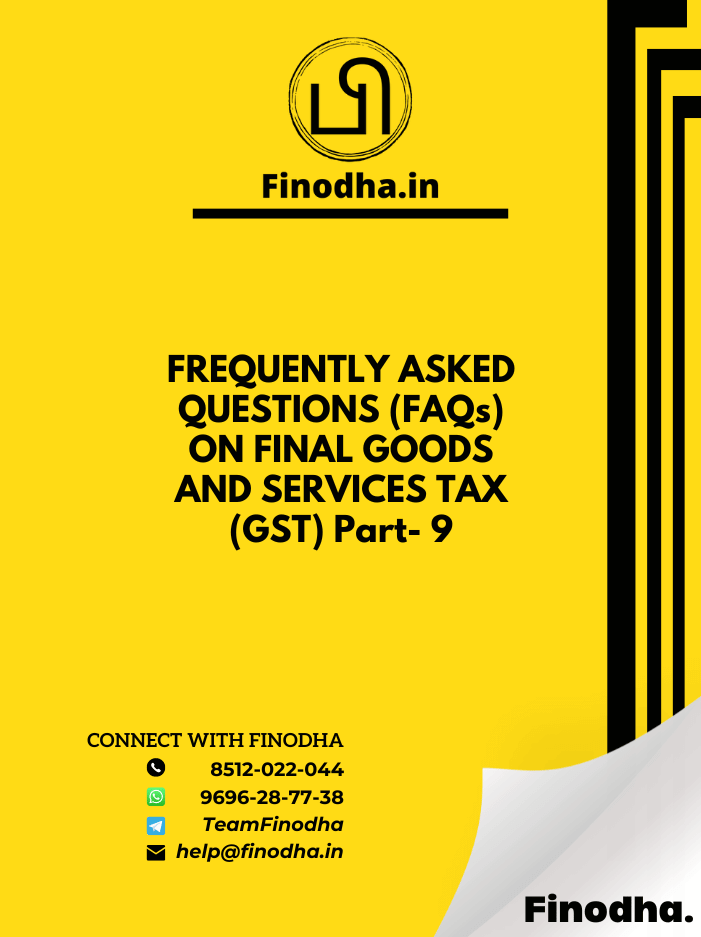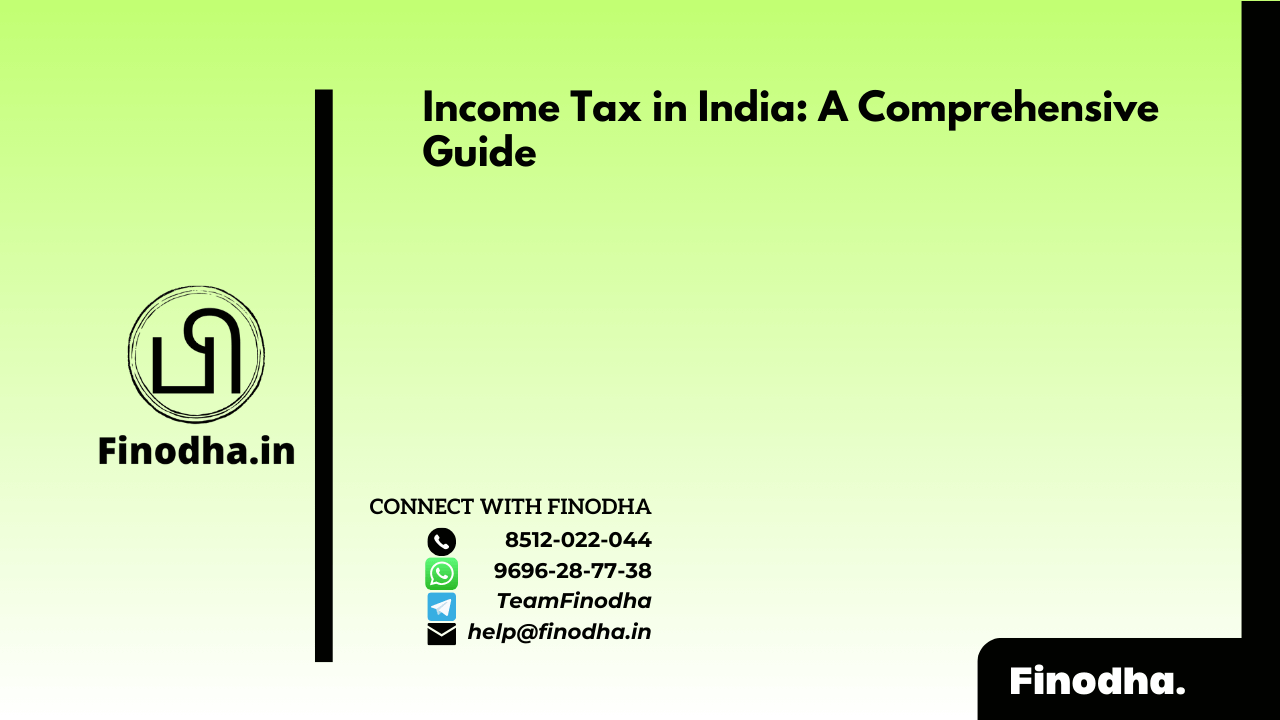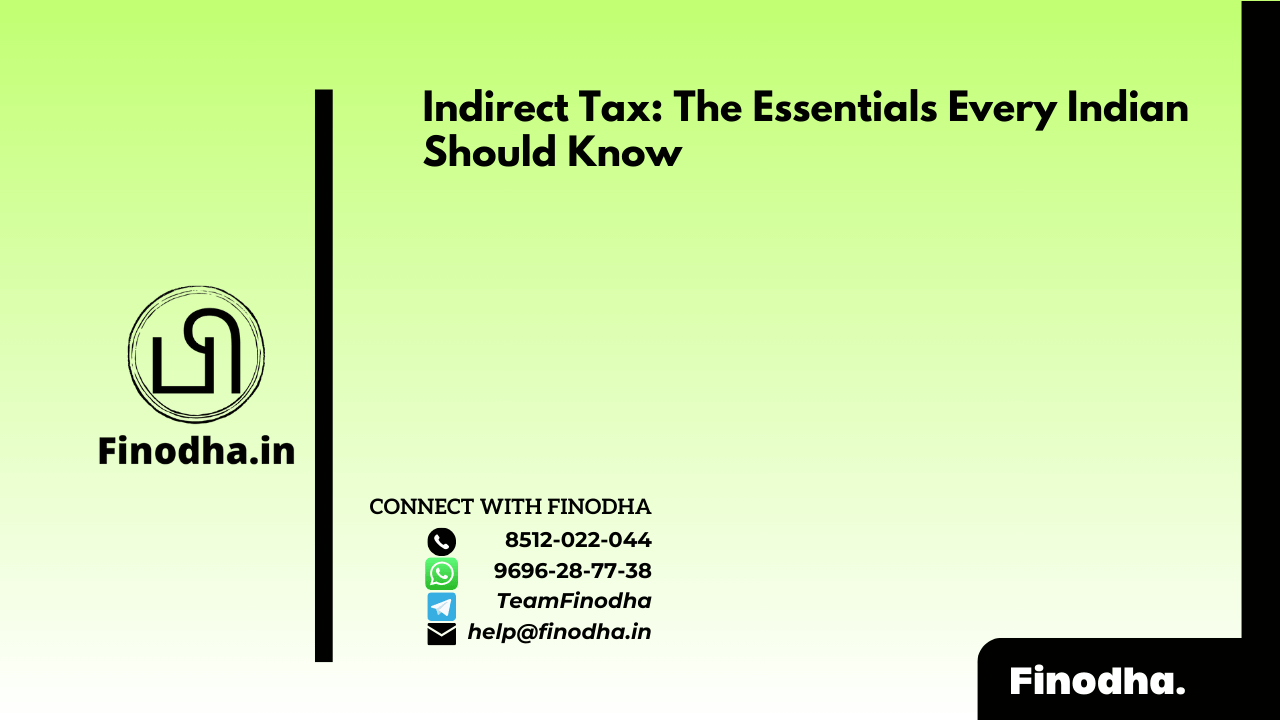Important Keyword: Notification No. 214/86 – CE, Section 2(68) CGST Act, Section 143 CGST Act, Section 24(i) CGST Act, Notification No. 10/2017 – Integrated Tax, Rule 138(1) CGST Rules, Rules 45 CGST Rules, Rules 55 CGST Rules, Section 143 CGST Act 2017, Rule 46(o) CGST Rules, Rule 45(3) CGST Rules, Section 15 CGST Act, Section 15(2)(b) CGST Act, Notification No. 5/2017-Central Tax, Section 54(3) CGST Act, Notification No.5/2017-Central Tax.
3rd Edition: 15th December 2018
(Note: Changes announced in GST Council meeting held on 22nd December 2018 are being incorporated and the updated edition will be uploaded shortly)
Table of Contents
Contents
- Overview of Goods and Services Tax (GST)
- Levy of and Exemption from Tax
2.1 Composition Levy - Registration
3.1 Amendment of Registration
3.2 Cancellation of Registration - Meaning and Scope of Supply
- Time of Supply
- Valuation in GST
- GST Payment of Tax
7.1 TDS Scheme - Electronic Commerce and Tax Collected at Source
- Job Work
- Input Tax Credit
- Concept of Input Service Distributor in GST
- Returns Process
- Assessment and Audit
13.1 Invoice, Credit and Debit Note
13.2 Accounts and Records under GST
13.3 E Way Bill - Refunds
14.1 Refunds by UINs - Demands and Recovery
- Appeals/Revision
- Advance Ruling
- Inspection, Search, Seizure and Arrest
- Offences, Penalties, Prosecution and Compounding
- Overview of the IGST Act
- Exports and Imports
21.1 Exports
21.2 Export of Services
21.3 Duty Drawback Scheme
21.4 Special Economic Zone(SEZ)
21.5 Export Oriented Units
21.6 Imports - Place of Supply of Goods and Service
22.1 Place of Supply of Goods
22.2 Place of Supply of Services (Location of supplier as well as recipient are in India)
22.3 Place of Supply of Services (Location of supplier or recipient is outside India) - GSTN and Frontend Business Process on GST Portal
- Transitional Provisions
- Anti-profiteering provisions
CENTRAL BOARD OF INDIRECT TAXES & CUSTOMS
NEW DELHI
9. Job Work
Q 1. What is job work?
Ans. Job work means undertaking any treatment or process by a person on goods belonging to another registered taxable person. The person who is treating or processing the goods belonging to other person is called ‘job worker’ and the person to whom the goods belongs is called ‘principal’.
This definition is much wider than the one given in Notification No. 214/86 – CE dated 23rd March, 1986. In the said notification, job work has been defined in such a manner so as to ensure that the activity of job work must amount to manufacture. Thus, the definition of job work itself reflects the change in basic scheme of taxation relating to job work in the proposed GST regime.
Q 2. Whether goods sent by a taxable person to a job worker will be treated as supply and liable to GST? Why?
Ans. It will be treated as a supply as supply includes all forms of supply such as sale, transfer, etc. However, the registered taxable person (the principal), under intimation and subject to such conditions as may be prescribed send any inputs and/or capital goods, without payment of tax, to a job worker for job work and from there subsequently to another job worker(s) and shall either bring back such inputs/capital goods after completion of job work or otherwise within 1 year/3years of their being sent out or supply such inputs/capital goods after completion of job work or otherwise within 1 year / 3 years of their being sent out, from the place of business of a job worker on payment of tax within India or with or without payment of tax for export.
Q 3. Is a job worker required to take registration?
Ans. Yes, as job work is a service, the job worker would be required to obtain registration if his aggregate turnover exceeds the prescribed threshold.
Q 4. Whether the goods of principal directly supplied from the job worker’s premises will be included in the aggregate turnover of the job worker?
Ans. No. It will be included in the aggregate turnover of the principal. However, the value of goods or services used by the job worker for carrying out the job work will be included in the value of services supplied by the job worker.
Q 5. Can a principal send inputs and capital goods directly to the premises of job worker without bringing it to his premises?
Ans. Yes, the principal is allowed to do so. The input tax credit of tax paid on inputs or capital goods can also be availed by the principal in such a scenario. The inputs or capital goods must be received back within one year or three years respectively failing which the original transaction would be treated as supply and the principal would be liable to pay tax accordingly.
Q 6. Can the principal supply the goods directly from the premises of the job worker without bringing it back to his own premises?
Ans. Yes. But the principal should have declared the premises of an unregistered job worker as his additional place of business. If the job worker is a registered person then goods can be supplied directly from the premises of the job worker. The Commissioner may also notify goods in which case goods sent for job work can be directly supplied from the premises of the job worker.
Q 7. Under what circumstances can the principal directly supply goods from the premises of job worker without declaring the premises of job worker as his additional place of business?
Ans. The goods can be supplied directly from the place of business of job worker without declaring it as additional place of business in two circumstances namely where the job worker is a registered taxable person or where the principal is engaged in supply of such goods as may be notified by the Commissioner.
Q 8. What are the provisions concerning taking of ITC in respect of inputs/capital goods sent to a job worker?
Ans. Principal shall be entitled to take credit of taxes paid on inputs or capital goods sent to a job worker whether sent after receiving them at his place of business or even when such the inputs or capital goods are directly sent to a job worker without their being first brought to his place of business. However, the inputs or capital goods, after completion of job work, are required to be received back or supplied from job worker’s premises, as the case may be, within a period of one year or three years of their being sent out.
Q 9. What happens when the inputs or capital goods are not received back or supplied from the place of business of job worker within prescribed time period?
Ans. If the inputs or capital goods are not received back by the principal or are not supplied from the place of business of job worker within the prescribed time limit, it would be deemed that such inputs or capital goods had been supplied by the principal to the job worker on the day when the said inputs or capital goods were sent out by the principal (or on the date of receipt by the job worker where the inputs or capital goods were sent directly to the place of business of job worker). Thus the principal would be liable to pay tax accordingly.
Q 10. Some capital goods like jigs and fixtures are non-usable after their use and normally sold as scrap. What is the treatment of such items in job work provisions?
Ans. The condition of bringing back capital goods within three years is not applicable to moulds, dies, jigs and fixtures or tools.
Q 11. What would be treatment of the waste and scrap generated during the job work?
Ans. The waste and scrap generated during the job work can be supplied by the job worker directly from his place of business, on payment of tax, if he is registered. If he is not registered, the same would be supplied by the principal on payment of tax.
Q 12. Whether intermediate goods can also be sent for job work?
Ans. Yes. The term inputs, for the purpose of job work, includes intermediate goods arising from any treatment or process carried out on the inputs by the principal or job worker.
Q 1 3. Who is responsible for the maintenance of proper accounts related to job work?
Ans. It is completely the responsibility of the principal to maintain proper accounts of job work related inputs and capital goods.
Q 14. Are the provisions of job work applicable to all categories of goods?
Ans. No. The provisions relating to job work are applicable only when registered taxable person intends to send taxable goods. In other words, these provisions are not applicable to exempted or non-taxable goods or when the sender is a person other than registered taxable person.
Q 15. Is it compulsory that job work provisions should be followed by the principal?
Ans. No. The principal can send the inputs or capital goods after payment of GST without following the special procedure. In such a case, the job-worker would take the input tax credit and supply back the processed goods (after completion of job-work) on payment of GST.
Q 16. Should job worker and principal be located in same State or Union territory?
Ans. No this is not necessary as provisions relating to job work have been adopted in the IGST Act as well as in UTGST Act and therefore job-worker and principal can be located either in same State or in same Union Territory or in different States or Union Territories.
Q 17. What is the scope of job work. Whether any inputs, other than goods provided by the principal can be used by the job worker for providing job work services?
Ans. The definition of job work, as contained in section 2(68) of the CGST Act, entails that the job work is a treatment or process undertaken by a person on goods belonging to another registered person. Thus, the job worker is expected to work on the goods sent by the principal and whether the activity is covered within the scope of job work or not would have to be determined on the basis of facts and circumstances of each case. Further, it is clarified that the job worker, in addition to the goods received from the principal, can use his own goods for providing the services of job work.
Q 18. Can a person other than registered person follow the job work procedure under the Act?
Ans. No. It is important to note that the provisions of section 143 of the CGST Act are applicable to a registered person. Thus, it is only a registered person who can send the goods for job work under the said provisions.
Q 19. In case the principal and job worker are located in different states, is it necessary for the job worker to obtain compulsory registration?
Ans. No. Where the principal and the job worker are located in different States, the requirement for registration flows from section 24(i) of the CGST Act which provides for compulsory registration of suppliers making any inter-State supply of services. However, exemption from registration has been granted in case the aggregate turnover of the inter-state supply of taxable services does not exceed Rs 20 lakhs or Rs. 10 lakhs in case of special category States except Jammu & Kashmir in a financial year vide notification No. 10/2017 – Integrated Tax dated 13.10.2017. Therefore, a job worker is required to obtain registration only in cases where his aggregate turnover, to be computed on all India.
Q 20. In case of inter-state movement of goods for job work, is generation of e-way bill necessary? If so by whom?
Ans. Yes. The third proviso to rule 138(1) of the CGST Rules provides that the e-way bill shall be generated either by the principal or by the registered job worker irrespective of the value of the consignment, where goods are sent by a principal located in one State/Union territory to a job worker located in any other State/Union territory.
Q 21. What are the legal/documentary requirements where goods are sent by the principal to only one job worker?
Ans. The principal shall prepare in triplicate, the challan in terms of rules 45 and 55 of the CGST Rules, for sending the goods to a job worker. Two copies of the challan may be sent to the job worker along with the goods. The job worker should send one copy of the said challan along with the goods, while returning them to the principal. The FORM GST ITC-04 will serve as the intimation as envisaged under section 143 of the CGST Act,2017.
Q 22. What are the legal/documentary requirements where goods are sent by one job worker to another job worker?
Ans. In such cases, the goods may move under the cover of a challan issued either by the principal or the job worker. In the alternative, the challan issued by the principal may be endorsed by the job worker sending the goods to another job worker, indicating therein the quantity and description of goods being sent. The same process may be repeated for subsequent movement of the goods to other job workers.
Q 23. What are the legal/documentary requirements where goods are returned to the principal by the job worker?
Ans. The job worker should send one copy of the challan received by him from the principal while returning the goods to the principal after carrying out the job work.
Q 24. What are the legal/documentary requirements where goods are sent directly by the supplier to the job worker?
Ans. In this case, the goods may move from the place of business of the supplier to the place of business/premises of the job worker with a copy of the invoice issued by the supplier in the name of the buyer (i.e. the principal) wherein the job worker’s name and address should also be mentioned as the consignee, in terms of rule 46(o) of the CGST Rules. The buyer (i.e., the principal) shall issue the challan under rule 45 of the CGST Rules and send the same to the job worker directly in terms of para (i) above. In case of import of goods by the principal which are then supplied directly from the customs station of import, the goods may move from the customs station of import to the place of business/premises of the job worker with a copy of the Bill of Entry and the principal shall issue the challan under rule 45 of the CGST Rules and send the same to the job worker directly.
Q 25. What are the legal/documentary requirements where goods are returned in piecemeal by the job worker?
Ans. In case the goods after carrying out the job work, are sent in piecemeal quantities by a job worker to another job worker or to the principal, the challan issued originally by the principal cannot be endorsed and a fresh challan is required to be issued by the job worker.
Q 26. What is the mode and manner in which the principal is required to intimate the details of goods sent for job work?
Ans. Rule 45(3) of the CGST Rules provides that the principal is required to furnish the details of challans in respect of goods sent to a job worker or received from a job worker or sent from one job worker to another job worker during a quarter in FORM GST ITC-04 by the 25th day of the month succeeding the quarter or within such period as may be extended by the Commissioner. It is the responsibility of the principal to include the details of all the challans relating to goods sent by him to one or more job worker or from one job worker to another and its return therefrom. The FORM GST ITC-04 will serve as the intimation as envisaged under section 143 of the CGST Act.
Q 27. How will liability devolve on the Principal in case inputs or capital goods are neither returned nor supplied from the job workers premises within the stipulated period?
Ans. If the inputs or capital goods are neither returned nor supplied from the job worker’s place of business / premises within the specified time period, the principal would issue an invoice for the same and declare such supplies in his return for that particular month in which the time period of one year / three years has expired. The date of supply shall be the date on which such inputs or capital goods were initially sent to the job worker and interest for the intervening period shall also be payable on the tax.
Q 28. What would be the GST implications in case the goods are returned by the job worker after the stipulated period?
Ans. If such goods are returned by the job worker after the stipulated time period, the same would be treated as a supply by the job worker to the principal and the job worker would be liable to pay GST if he is liable for registration in accordance with the provisions contained in the CGST.
Q 29. Whether the value of Moulds and dies, jigs and fixtures or tools which have been provided by the principal to the job worker and have been used by the latter for providing job work services would be included in the value of job work services?
Ans. Section 15 of the CGST Act lays down the principles for determining the value of any supply under GST. Importantly, clause (b) of sub-section (2) of section 15 of the CGST Act provides that any amount that the supplier is liable to pay in relation to the supply but which has been incurred by the recipient will form part of the valuation for that particular supply, provided it has not been included in the price for such supply. Accordingly, the value of such Moulds and dies, jigs and fixtures or tools may not be included in the value of job work services provided its value has been factored in the price for the supply of such services by the job worker.
Q 30. How would be the time and place of supply be determined, where the supply is made by the principal from the premises of the job worker?
Ans. Since the supply is being made by the principal, the time, value and place of supply would have to be determined in the hands of the principal irrespective of the location of the job worker’s place of business/premises. Further, the invoice would have to be issued by the principal.
Q 31. Whether independent fabric processors (job workers) in the textile sector supplying job work services are eligible for refund of unutilized input tax credit on account of inverted duty structure under section 54(3) of the CGST Act, 2017, even if the goods (fabrics) supplied are covered under notification No. 5/2017-Central Tax (Rate) dated 28.06.2017?
Ans. Notification No. 5/2017-Central Tax (Rate) dated 28.06.2017 specifies the goods in respect of which refund of unutilized input tax credit (ITC) on account of inverted duty structure under section 54(3) of the CGST Act shall not be allowed where the credit has accumulated on account of rate of tax on inputs being higher than the rate of tax on output supplies of such goods. However, in case of fabric processors, the output supply is the supply of job work services and not of goods (fabrics). Hence, the fabric processors shall be eligible for refund of unutilized ITC on account of inverted duty structure under section 54(3) of the CGST Act even if the goods (fabrics) supplied to them are covered under notification No.5/2017-Central Tax (Rate) dated 28.06.2017
*****
Read More: FREQUENTLY ASKED QUESTIONS (FAQs) ON FINAL GOODS AND SERVICES TAX (GST) Part- 8
Download Pdf: https://gstcouncil.gov.in/sites/default/files/faq/Final-GST-FQ-31218.pdf




